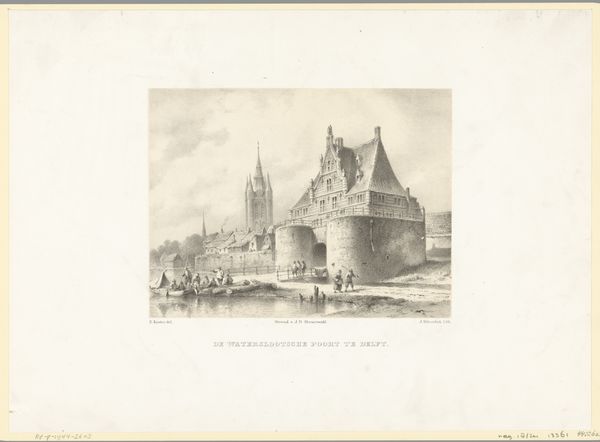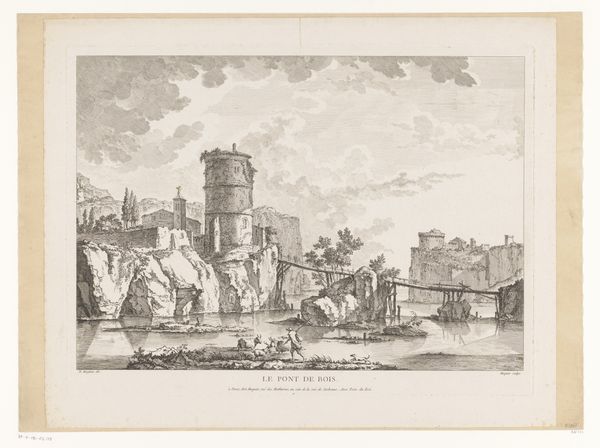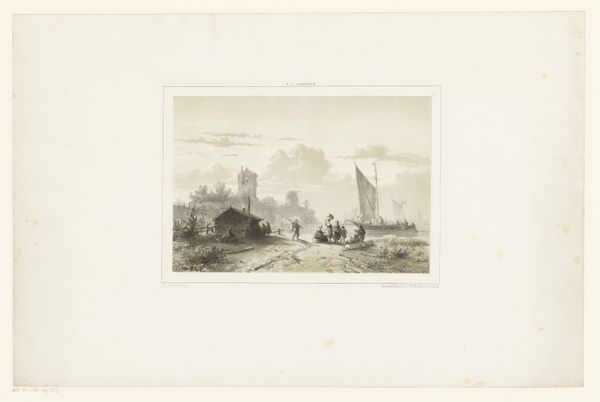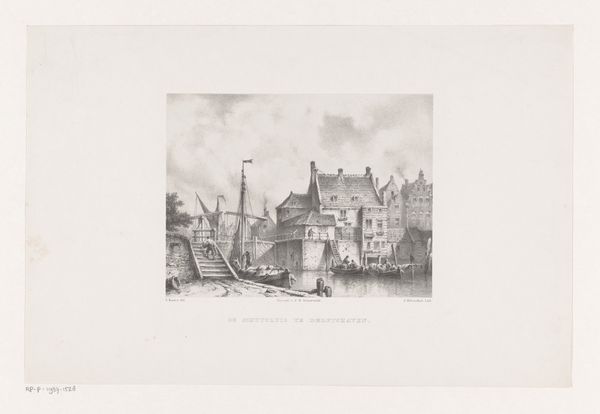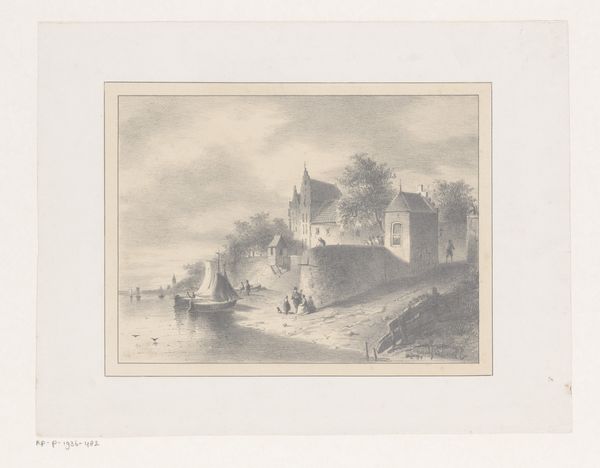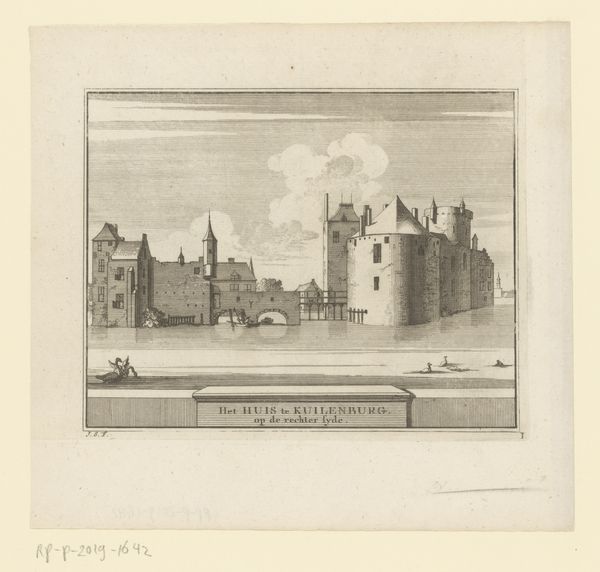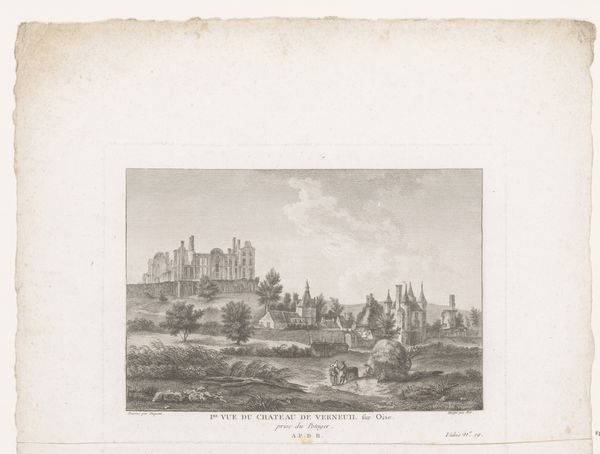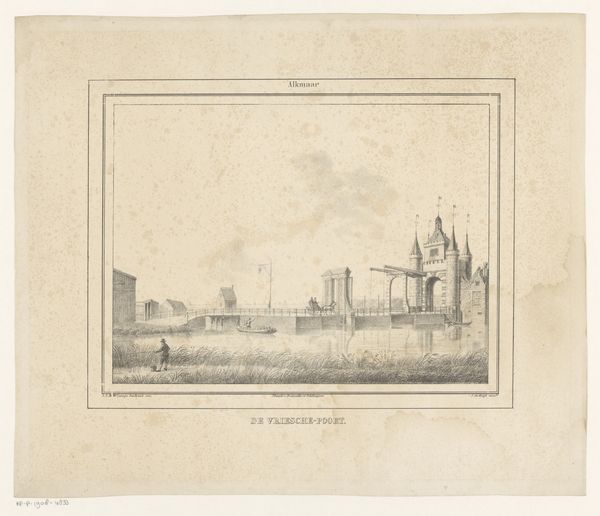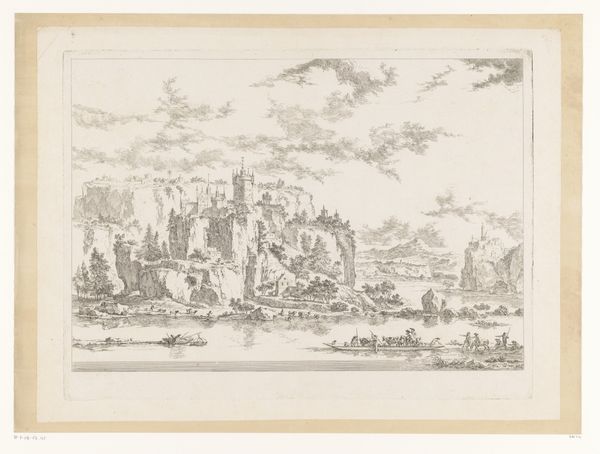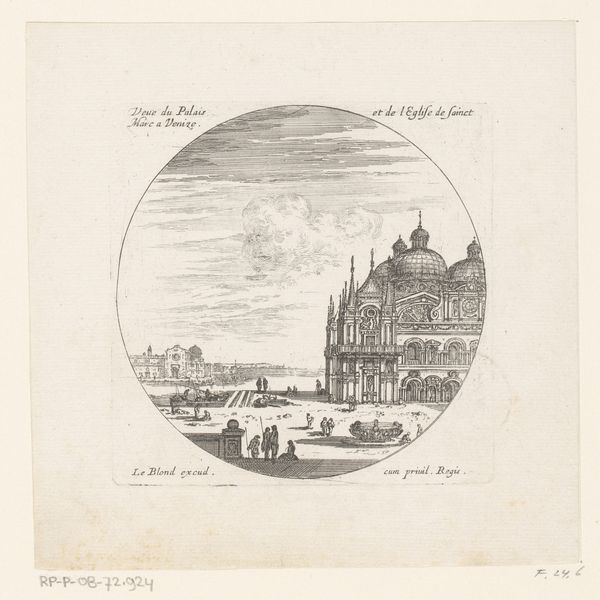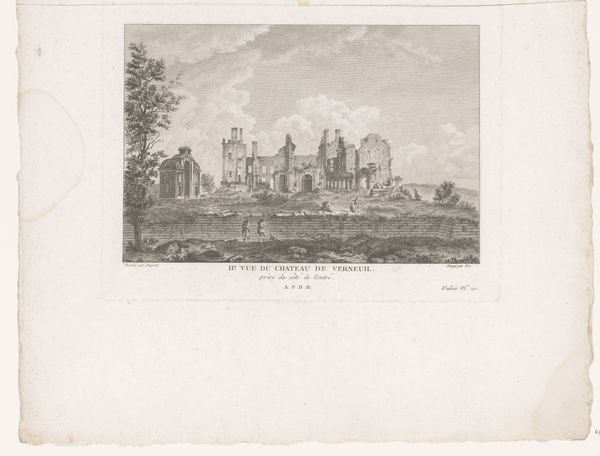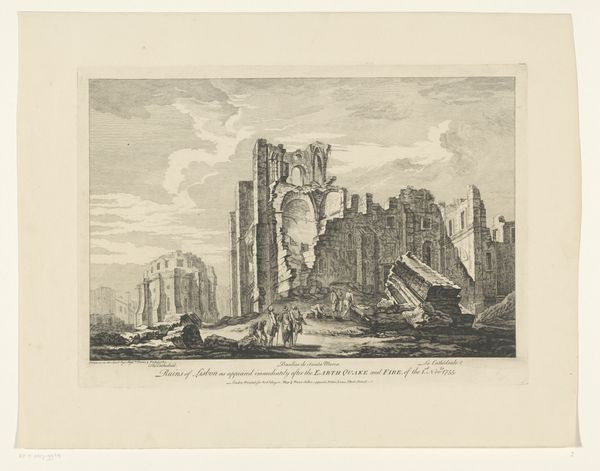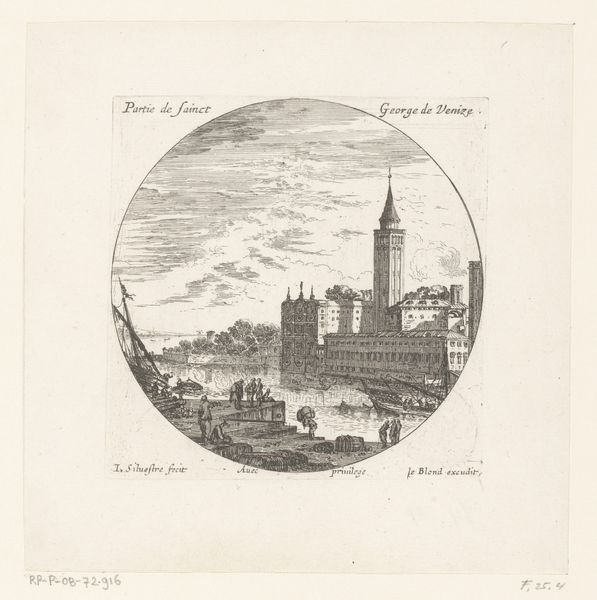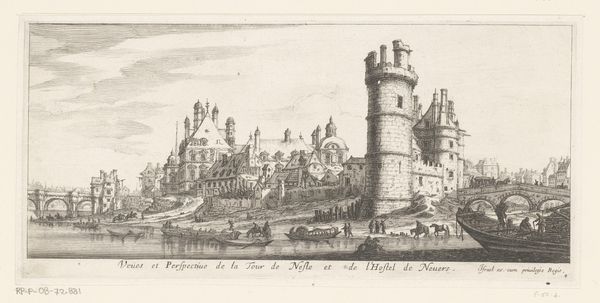
drawing, paper, ink
#
drawing
#
dutch-golden-age
#
landscape
#
paper
#
ink
#
cityscape
Dimensions: height 180 mm, width 270 mm
Copyright: Rijks Museum: Open Domain
Editor: So, this is Roelant Roghman’s "Gezicht op de Valkhofburcht te Nijmegen," created sometime between 1637 and 1692. It's an ink drawing on paper. I find it kind of melancholic, almost like a fading memory of the castle. What jumps out at you when you look at it? Curator: The symbolism is rich, isn't it? Water, in many traditions, represents the subconscious, the flow of time. A crumbling castle… what does that evoke? Think about what a castle *is*: protection, power, authority. What does it mean when that's in decay? Does it reflect a shift in cultural values, a move away from feudal power structures? The figures almost look as though they’re floating. How are they anchored? Editor: I see what you mean about the figures; they’re small and not very detailed. So the decaying castle and the figures sort of represent the passage of time, I guess? Curator: Perhaps. Look at the inscription at the top of the image: it situates the place in the public's awareness even centuries later. These visual markers create and continue cultural memory; they connect people across time through a shared symbolic understanding. The drawing becomes an active participant in this historical dialogue, constantly being reinterpreted. How much can our understanding of historical iconography truly represent shared cultural context? Editor: That’s a cool perspective. I was just seeing a landscape, but now I see layers of meaning connected to history and memory. Curator: Exactly. Art invites us to investigate the ever-shifting symbolic landscape that is human culture. What resonates most with you now about it? Editor: I think I see now it's more about change and less about being sad. It's not just a picture of a castle. It is what the ruin *means*. Thanks. Curator: My pleasure. It's through that kind of exploration we really start to unlock an artwork's full potential, isn't it?
Comments
No comments
Be the first to comment and join the conversation on the ultimate creative platform.
